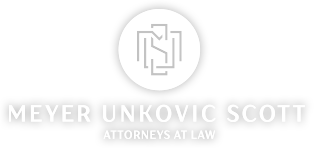
In August 2020, the Securities and Exchange Commission (“SEC”) opened the door and adopted a less-restrictive definition of “accredited investor,” thus allowing more to have access as investors in private capital markets. The SEC amendments and order will become effective 60 days after publication in the Federal Register (the daily journal of the Federal government). As of the time of the writing of this advisory, the final rule change has not yet been published in the Federal Register. Effectiveness is expected in November 2020, and accordingly, the rule changes are likely only effective for closings occurring in November 2020 and later.
This definition has been the benchmark for determining who is eligible to participate as an investor in private capital markets within the United States. Investors who did not meet income or net worth tests were not afforded opportunities to invest in private markets. The original definition (found in Rule 501 of Regulation D) did not take into consideration an investor’s financial sophistication as a determining factor.
The new definition allows “investors to qualify as accredited investors based on defined measures of professional knowledge, experience or certifications in addition to the existing tests for income or net worth.” Expansion was also provided to allow more entities to qualify as accredited investors. Among other changes, the amendments to the accredited investor definition add new categories of qualifying natural persons and entities. The amendments to the qualified institutional buyer definition similarly expand the list of eligible entities under that definition.
Specifically, the SEC adopted amendments to update Rule 501(a) and the definition of “qualified institutional buyer” in Rule 144A under the Securities Act of 1933 (the “Securities Act”). The SEC also adopted conforming amendments to Rule 163B (permit issuers to engage in oral or written communications with potential investors that are, or are reasonably believed to be, qualified institution buyers or institution accredited investors) under the Securities Act and to Rule 15g-1 (the so-called “penny stock rules”)under the Exchange Act.
As published by the SEC in its press release, the amendments to the accredited investor definition in Rule 501(a) are as follows:
- add a new category to the definition that permits natural persons to qualify as accredited investors based on certain professional certifications, designations or credentials or other credentials issued by an accredited educational institution, which the Commission may designate from time to time by order. In conjunction with the adoption of the amendments, the Commission designated by order holders in good standing of the Series 7, Series 65, and Series 82 licenses as qualifying natural persons. This approach provides the Commission with flexibility to reevaluate or add certifications, designations, or credentials in the future. Members of the public may wish to propose for the Commission’s consideration additional certifications, designations or credentials that satisfy the attributes set out in the new rule;
- include as accredited investors, with respect to investments in a private fund, natural persons who are “knowledgeable employees” of the fund;
- clarify that limited liability companies with $5 million in assets may be accredited investors and add SEC and state-registered investment advisers, exempt reporting advisers, and rural business investment companies (RBICs) to the list of entities that may qualify;
- add a new category for any entity, including Indian tribes, governmental bodies, funds, and entities organized under the laws of foreign countries, that own “investments,” as defined in Rule 2a51-1(b) under the Investment Company Act, in excess of $5 million and that was not formed for the specific purpose of investing in the securities offered;
- add “family offices” with at least $5 million in assets under management and their “family clients,” as each term is defined under the Investment Advisers Act; and
- add the term “spousal equivalent” to the accredited investor definition, so that spousal equivalents may pool their finances for the purpose of qualifying as accredited investors.
The definition of “qualified institutional buyer” in Rule 144A is expanded to include limited liability companies and rural business investment companies if they meet the $100 million in securities owned and invested threshold in the definition.
Also added to the list are any institutional investors included in the accredited investor definition that are not otherwise enumerated in the definition of “qualified institutional buyer,” provided that they satisfy the $100 million threshold.
If you have questions about the Securities and Exchange Commission (“SEC”) less-restrictive definition of “accredited investor,” please contact Maxwell Briskman Stanfield ([email protected]), any member of the Real Estate & Lending Group, or any other Meyer, Unkovic & Scott attorney with whom you have worked.

